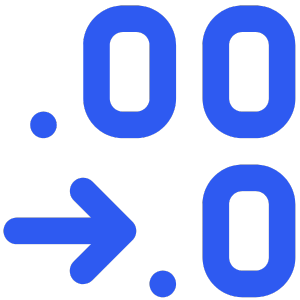How to Read and Interpret Sports Betting Odds Like a Pro
Sports betting has gained immense popularity over the years, driven by its thrill of competition, its potential financial gains, and the accessibility of its online platforms.
Understanding betting odds is crucial for becoming successful in sports betting as they represent the likelihood of a particular outcome and determine a bet’s potential payouts. Mastery of odds enables bettors to make informed decisions, assess risk, and identify value bets.
Understanding the Basics of Sports Betting Odds
In the context of sports betting, odds indicate the potential payout a bettor can receive if their prediction is correct. Essentially, they serve as a way to quantify the likelihood of different outcomes and allow bettors to assess the risk and potential reward of their wagers.
Types of Odds

Decimal Odds: Commonly used in Europe and Canada, decimal odds represent the total return a bettor will receive on a one-unit wager, including the initial stake. For example, odds of 2.50 mean that for every unit wagered, the bettor will receive a total of 2.50 units if their bet wins, including their original stake.

Fractional Odds: Popular in the UK and Ireland, fractional odds express the potential profit relative to the stake. For example, odds of 3/1 mean that for every unit wagered, the bettor will receive a profit of three units if their bet wins, in addition to the return of their original stake.

American/Moneyline Odds: Predominantly used in the United States, moneyline odds can be expressed as either positive or negative numbers. Positive odds indicate the potential profit on a one-unit wager, while negative odds indicate how much must be wagered to win one unit. For example, +200 odds mean a profit of $200 on a $100 bet, while -150 odds require a $150 bet to win $100.
How Odds are Calculated
Bookmakers consider various factors when setting odds to ensure they accurately reflect the probability of different outcomes. These factors include:


Team/Player Performance: Recent and historical performance data play a crucial role. Teams or players with a strong track record are more likely to have lower odds, which is why sports betting strategies often emphasize tracking trends and consistency.
Injuries and Suspensions: The absence of key players due to injuries or suspensions can significantly impact the likelihood of a particular outcome, thus affecting the odds. This is especially relevant in NFL futures betting where injury reports drive line movement.
Head-to-Head Records: Historical outcomes between opponents can provide valuable insights into their relative strengths and weaknesses, influencing odds accordingly.
Market Demand: Bookmakers also consider the betting patterns of their customers. If a significant number of bets are placed on a particular outcome, odds may be adjusted to balance the bookmaker’s liability — a concept covered in line movement strategies.
Expert Analysis: Insights from sports analysts and expert opinions can influence odds, especially in high-profile events where public perception plays a significant role.
The Role of Probability in Odds
“Odds are essentially a representation of probability.“
They indicate the likelihood of a specific outcome occurring in a sporting event. The mathematical basis of odds as probabilities lies in the relationship between the probability of an event and the potential payouts associated with different outcomes — a concept essential to understanding moneyline betting.
For example, if the probability of an outcome is high, the odds will be lower, reflecting a lower potential payout. Conversely, if the probability of an outcome is low, the odds will be higher, indicating a higher potential payout — this dynamic is at the core of identifying value bets and making informed decisions.
Changes in Odds
Odds are not fixed and may change leading up to an event due to various factors, including:


New Information: Updates on team news, injuries, or other relevant developments can prompt bookmakers to adjust the odds to reflect the changing probabilities.
Betting Activity: As more bets are placed on a particular outcome, bookmakers may adjust the odds to balance their exposure and minimize potential losses. This behavior ties into understanding how public betting data can shift market lines in real time.
Market Trends: Changes in the broader betting market, including fluctuations in demand and supply, can influence odds. Bookmakers may adjust their odds to stay competitive or react to industry-wide movements.
External Factors: Events outside of the sporting realm, such as weather conditions or geopolitical events, can also impact odds, especially in sports where such factors play a significant role in determining outcomes.
Interpreting Odds for Betting Strategy
Here’s a few ways to interpret odds so that you can adjust your betting strategy and increase your chances of getting a payout.
Value Betting
Identifying value in betting odds is crucial for successful wagering. Value betting occurs when the probability of an outcome is underestimated by the bookmaker, resulting in odds that offer a potential reward that outweighs the perceived risk.
To identify value bets, compare the implied probability of the odds (calculated by converting them into percentages) to your own assessment of the likelihood of the outcome. If your analysis suggests a higher probability than implied by the odds, there may be value in placing a bet on that outcome. For a deeper look into this concept, explore value betting strategies and how to capitalize on market inefficiencies.
Implied Probability of Odds Formula
Implied Probability = -ODDS / (-ODDS + 100)
Example with -200 Odds
200 / (200 + 100) = 200 / 300 = 66.7%
Odds Comparison
Comparing odds across different bookmakers is essential for finding the best value and maximizing potential returns. Different bookmakers may offer slightly different odds for the same event based on their own assessments of the probabilities involved.
By shopping around and comparing odds from multiple bookmakers, bettors can identify discrepancies and capitalize on the most favorable odds available. Using odds comparison strategies is one of the most effective ways to consistently improve your edge. Online tools now make this process faster and more accessible, helping bettors quickly spot the best value bets across platforms.
Understanding the Bookmaker’s Margin
Bookmakers ensure profitability by incorporating a margin into their odds, known as the overround. The overround represents the theoretical profit margin built into the odds, ensuring that the sum of the implied probabilities for all possible outcomes exceeds 100%. This guarantees that the bookmaker generates a profit regardless of the actual outcome of the event.
Understanding the bookmaker’s margin is crucial for bettors to assess the value of odds accurately and make informed betting decisions. For those looking to develop a sharp edge, learning how to read and interpret sports betting odds is a foundational step toward recognizing low-margin opportunities and increasing long-term profitability.
Advanced Concepts in Sports Betting Odds
As you delve deeper into the realm of sports betting, mastering advanced concepts can provide a significant edge. This section explores sophisticated techniques that leverage technology and deep analytical approaches to enhance betting strategies.
Utilizing Statistical Models
Statistical modeling involves the use of mathematical formulas and algorithms to predict the outcome of sporting events. By analyzing historical data, bettors can identify patterns and trends that are not immediately obvious.
Common models include regression analysis, which can forecast outcomes based on previous performance metrics. Bettors who understand or develop these models can often find value bets that less sophisticated bettors overlook. For those looking to enhance this approach, consider exploring research and analysis techniques that support model building and data interpretation.
Incorporating Machine Learning Predictions
Machine learning takes statistical modeling a step further by enabling predictive models to learn from new data continuously.
This approach is particularly powerful in sports betting as it can adapt to new trends such as changes in team performance, coaching strategies, or player injuries. By training models on a wide dataset, machine learning algorithms can improve their predictions over time, offering a dynamic edge in betting strategies.
These advanced methods require a solid understanding of both the sports involved and the underlying technical principles. Bettors who are willing to invest in these technologies can significantly enhance their ability to identify profitable betting opportunities.
Practical Tips for Using Betting Odds

Staying Informed
Keeping up with sports news, player conditions, and other relevant factors is paramount for successful sports betting. This information provides valuable insights into the current state of teams, players, and events, helping bettors make informed decisions. One effective way to stay sharp is by following a daily sports betting report that highlights news, injuries, and line movement impacting the day’s wagers.

Record Keeping
Maintaining detailed records of bets, outcomes, and the odds at the time of betting is essential for bettors to analyze their performance and improve their strategies over time.

Bankroll Management
Effective bankroll management is crucial for responsible sports betting and long-term success. Here are some strategies for managing a betting budget responsibly.

Set a Budget
Determine how much money you can afford to lose without impacting your financial stability. This amount should be considered your betting bankroll.

Set Stake Limits
Establish limits on the amount of money you wager on each bet relative to your bankroll. Generally, it’s recommended to bet only a small percentage of your bankroll on each wager to minimize risk. For guidance on managing your funds effectively, check out this resource on sports betting bankroll management.

Avoid Chasing Losses
Don’t attempt to recoup losses by increasing your bet sizes or chasing long-shot bets. Stick to your predetermined stake limits and betting strategy. Developing professional betting discipline is key to avoiding emotional decisions and long-term losses.

Stay Disciplined
Resist the temptation to bet impulsively or deviate from your established bankroll management plan, even during winning streaks. Staying disciplined is essential to long-term success, and many professionals emphasize the importance of responsible betting habits.

Monitor and Adjust
Regularly review your betting activity and bankroll status. If necessary, adjust your betting strategy or bankroll management plan based on your performance and evolving goals.
By adhering to these principles of bankroll management, bettors can mitigate risk, prolong their betting enjoyment, and increase their chances of long-term profitability in the unpredictable world of sports betting.
Sharpen Your Edge and Bet Smarter
Mastering the intricacies of sports betting — from understanding odds to implementing effective strategies like value betting and bankroll discipline — is essential for long-term success in this dynamic and competitive arena.
A thoughtful, data-driven approach can lead to both profitability and a deeper appreciation for the betting process. Check back regularly for new insights, tools, and tips that will help you get the most out of your wagers and grow into a more strategic, profitable sports bettor.
